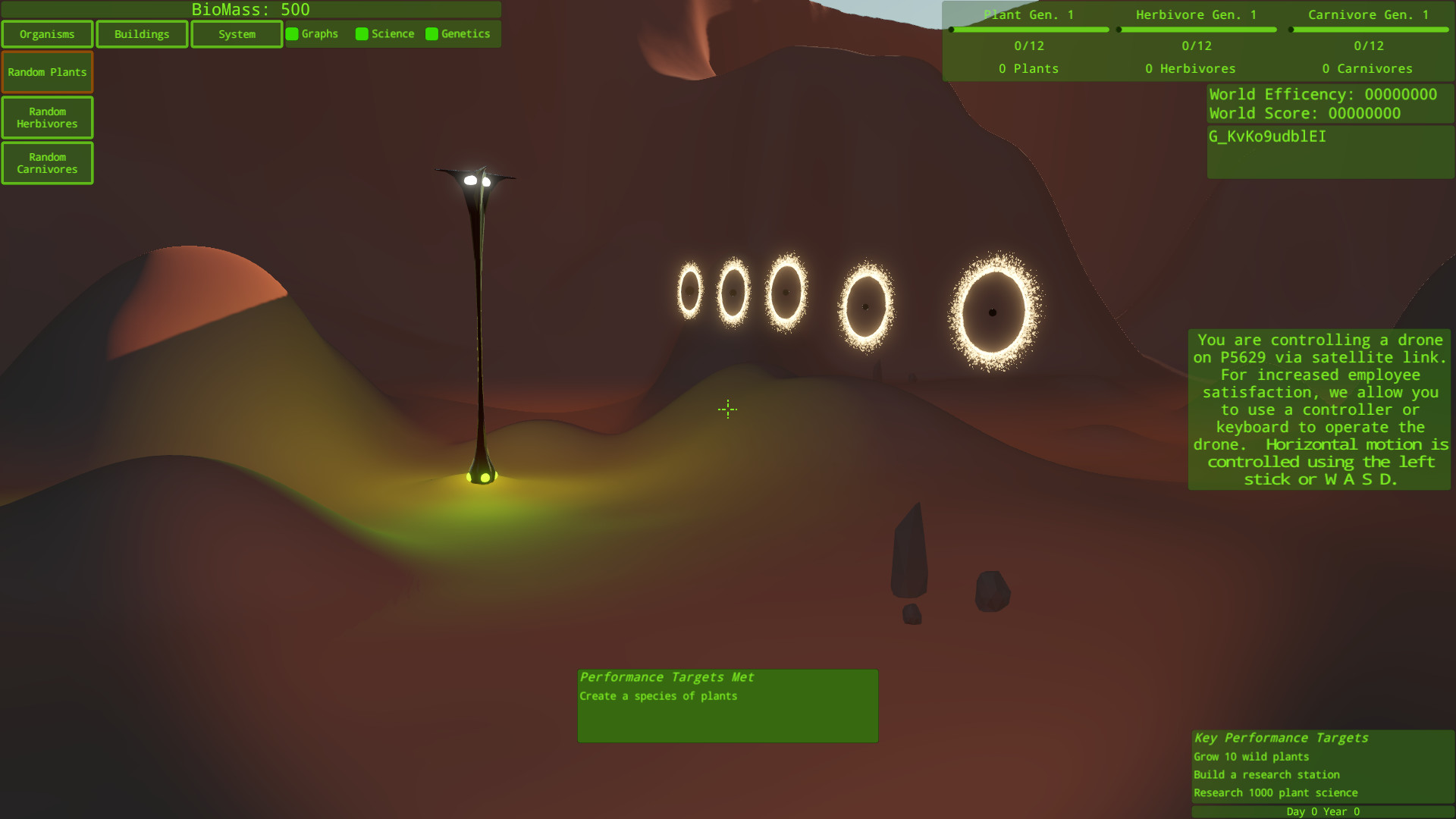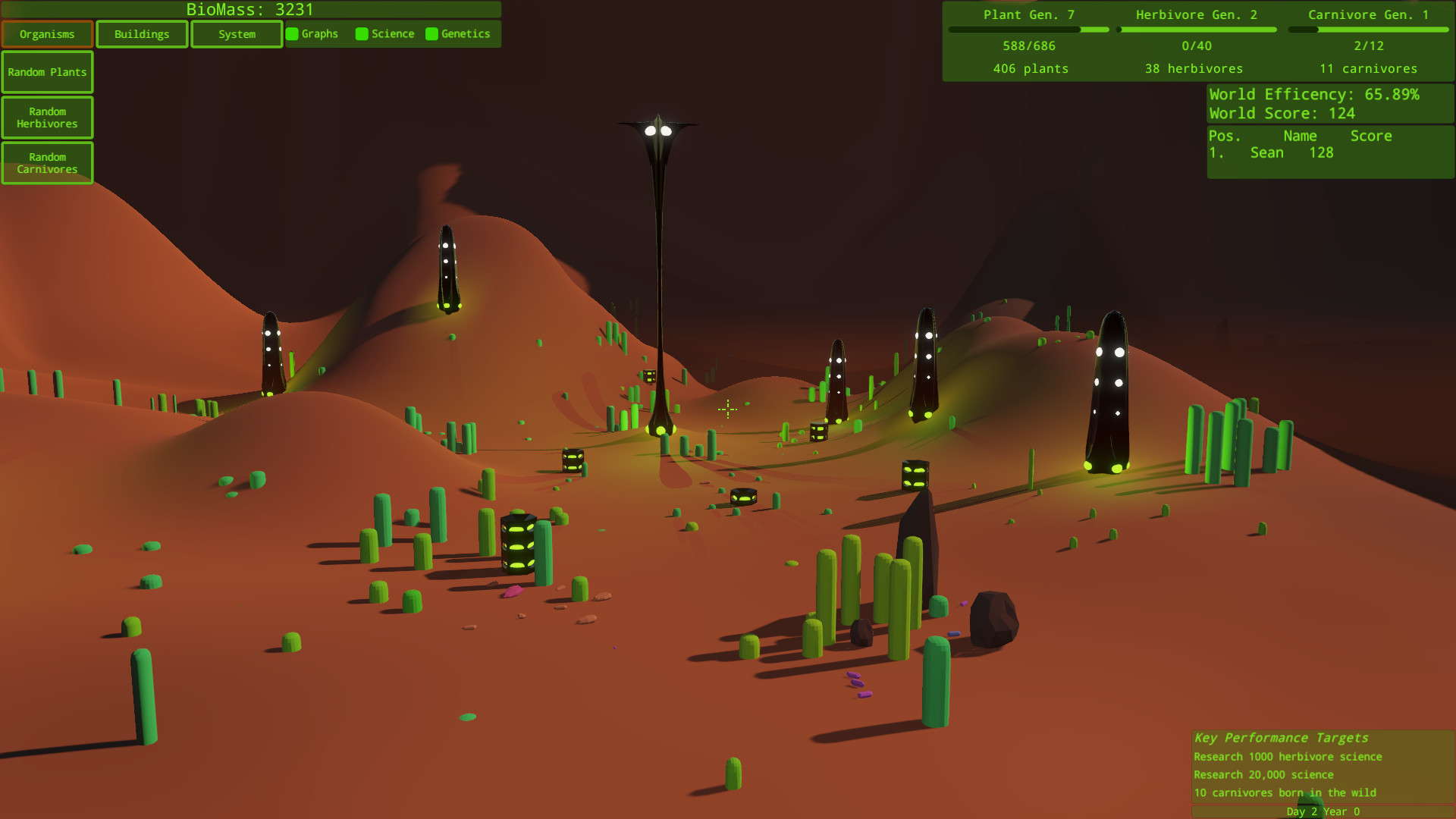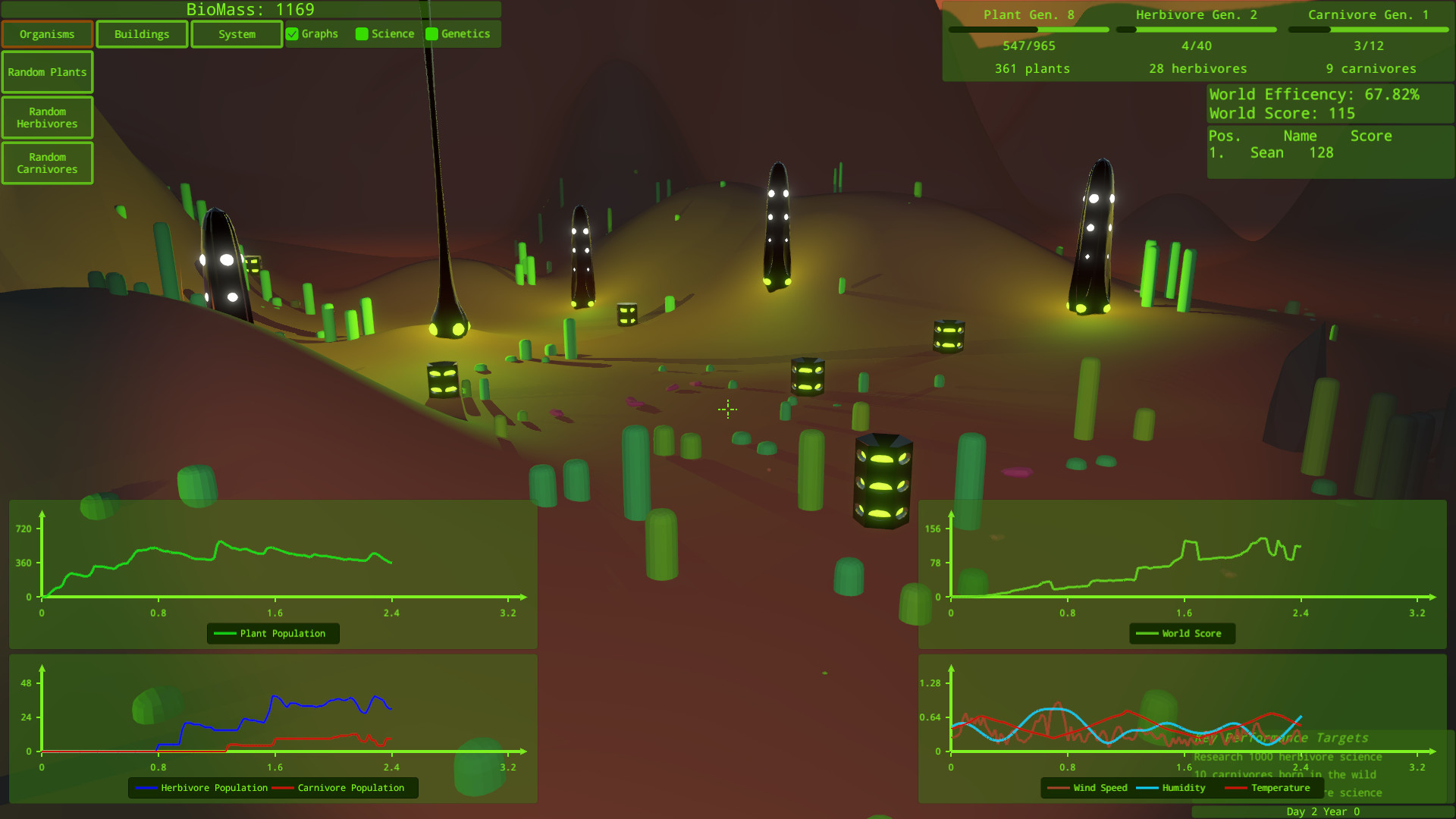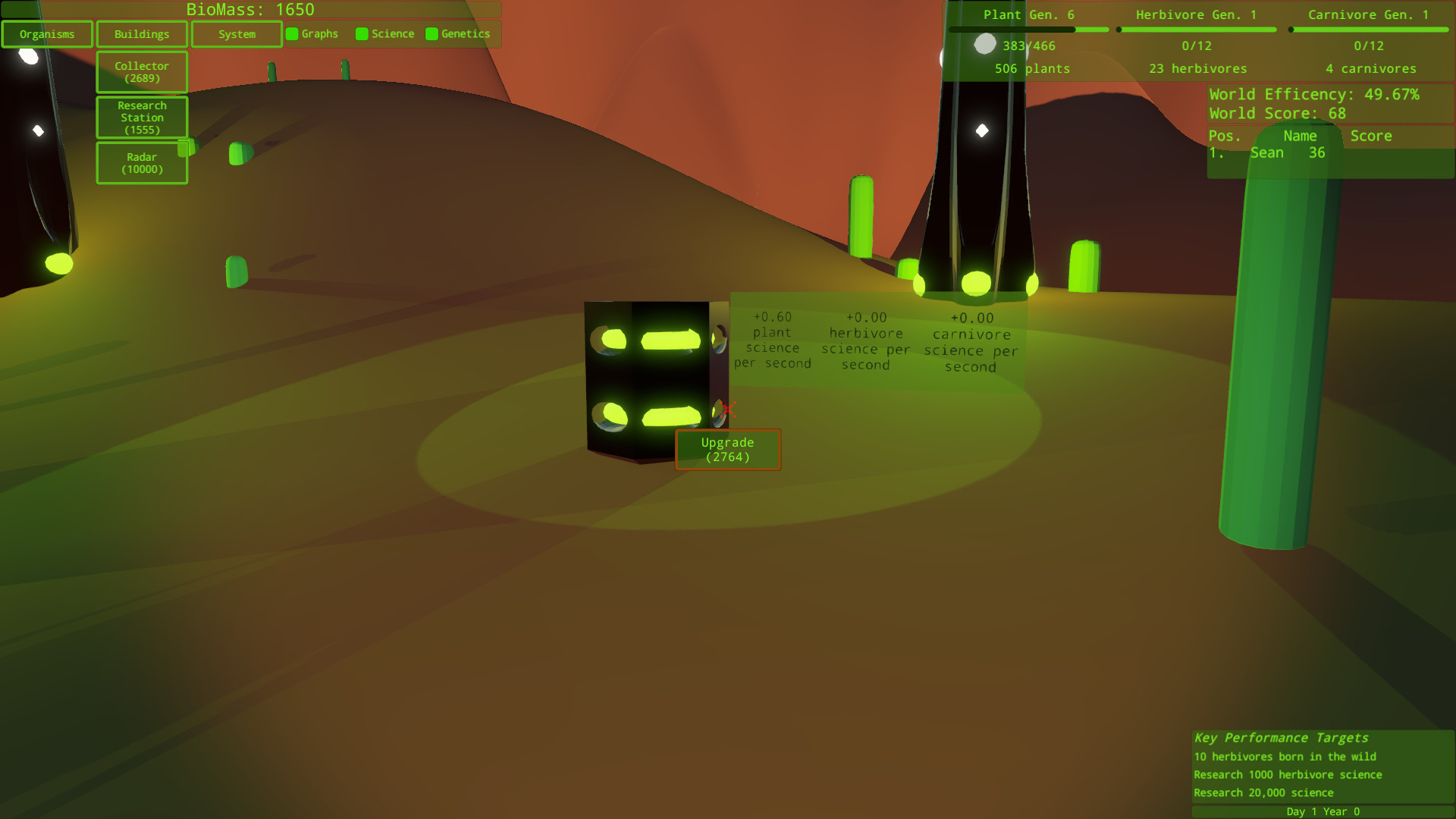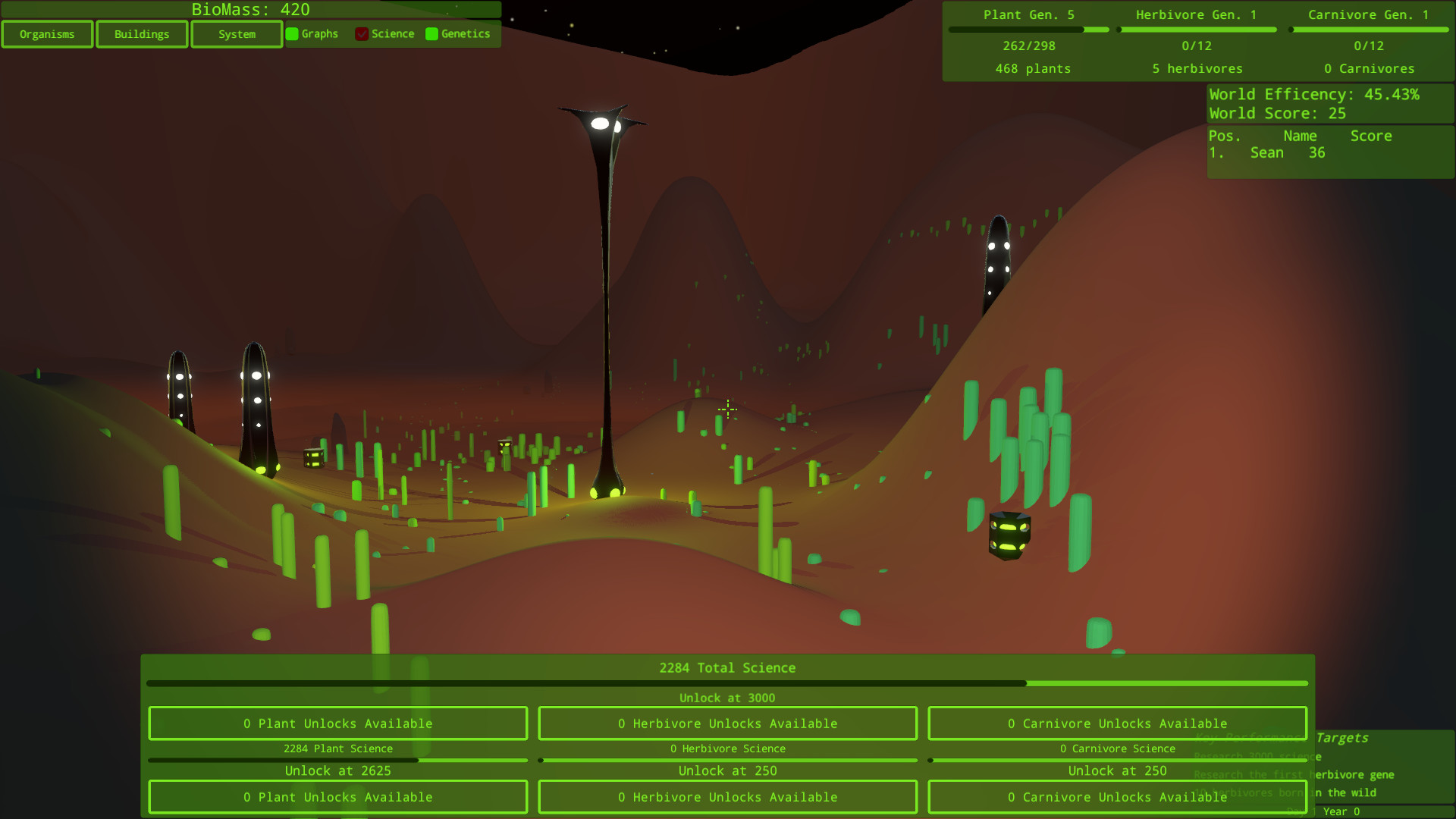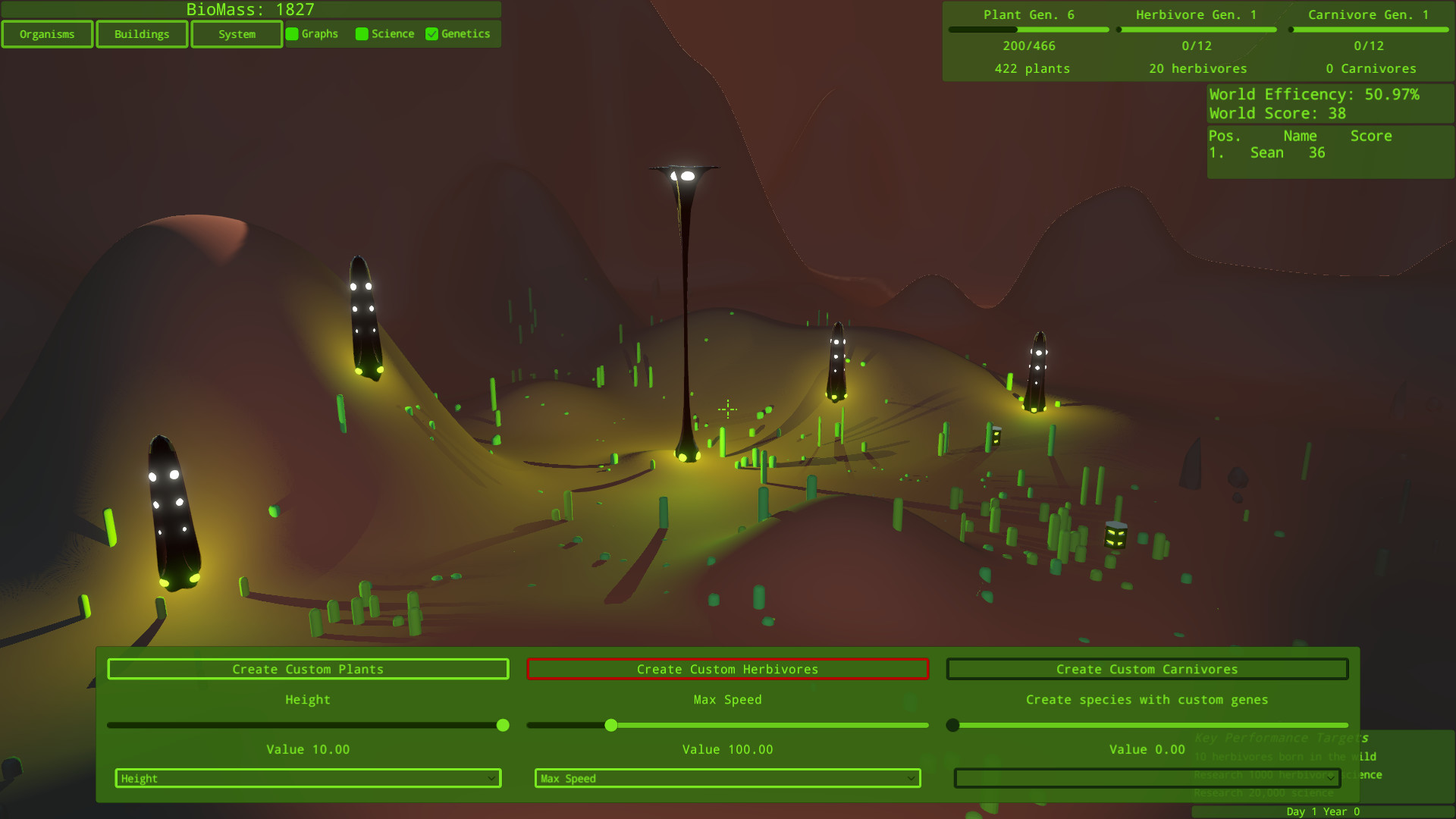Intelligent Design: An Evolutionary Sandbox is a god game with fully simulated genetics and evolution. Create species of plants, herbivores and carnivores and try to control the ever evolving ecosystem. Design and create genetically modified organisms, but remember when you start tampering with genetics it is hard to undo your mistakes...
Key Features
Fully modelled genetics and evolution
The behaviour and appearance of each organism are determined by their genetics. How tall will a plant grow? How fast can an herbivore run? How often does a carnivore seek prey? These genetics are passed down generation after generation, with random mutations caused by radiation. Evolution is fully simulated, there are no tricks or statistical approximations. You are watching life evolve on your computer.
Weather and Climate Model
Temperature, humidity and wind are all modelled in the game. The weather and climate effect your organisms and perhaps your actions affect the climate as well…
Genetic Engineering
One of your key objectives is to investigate the organisms you create. Build collectors to harvest resources and research stations to observe the organisms. Eventually you will unlock the secrets of genetic engineering. Create your own genetically modified organisms, but be careful, once a genome has entered your ecosystem it may be hard to undo the damage…
Science to be Done
What do all those genes actually do? How is the world score calculated? What does world efficiency even mean? Much like a real scientist you will need to investigate, analyse and work with other players to try and answer these questions. To help you along the way the game outputs data in xml files so you can really get your science on.
Secrets to Discover
Who is employing you to create this ecosystem? Why are they doing it? Why are you doing it? What are those targets for? The answers to these any many other questions are out there, you just need to work together and find them...
We have just published a full guide to all the genes in Intelligent Design: An Evolutionary Sandbox. This contains all we know about the genetics, so don't read it if you want to figure that stuff out yourself.
This is to get people thinking about the guide competition we announced last week to win a copy of Cycle 28 . If you want a chance to be one of the first to play our next game, follow the instructions in the post linked above.
Since I started designing Intelligent Design my aim was to make people feel like a scientist. To achieve that I wanted to hold back some information and let players work together to investigate the world. Some people really enjoyed that, whereas other people did not. For a while I've been resisting making a guide like this, but more recently I wondered "who am I to tell you how to enjoy the game". In light of that change of heart we've posted this guide. Hope you enjoy it and really hope it ignites some creativity with genetic engineering!
Minimum Setup
- OS: Linux (Most distros should work)
- Processor: Quad Core @ 2.3GHzMemory: 4 GB RAM
- Memory: 4 GB RAM
- Graphics: Intel(R) HD Graphics 520
- Storage: 500 MB available spaceAdditional Notes: Large ecosystems may cause performance issues on systems without dedicated graphics cards.
Recommended Setup
- OS: Ubuntu 14.04
- Processor: Quad Core @ 3GHzMemory: 8 GB RAM
- Graphics: NVIDIA GeForce GTX 780 or equivalent
- Storage: 500 MB available space
[ 6446 ]
[ 4292 ]
[ 5362 ]

